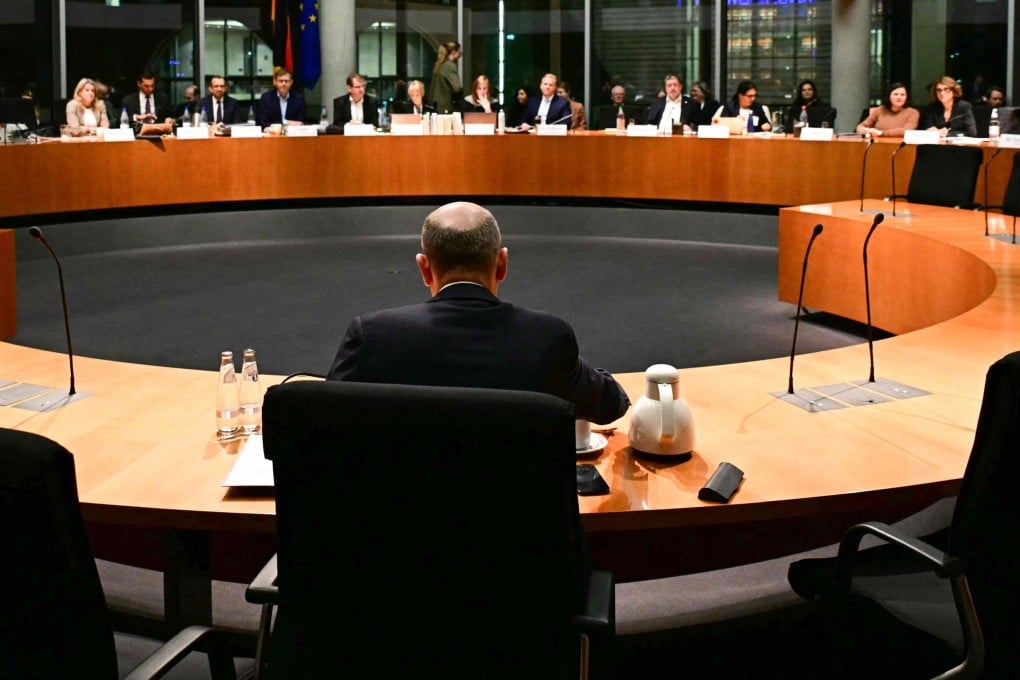Advertisement
Opinion | Faltering Germany poses a dire risk to Europe, China and beyond
Germany’s trajectory depends on its next chancellor overcoming ideological divisions to champion economic pragmatism and structural reform
Reading Time:3 minutes
Why you can trust SCMP
4

Germany, once the iron engine of Europe, finds itself rusting. Guided by chancellors such as Konrad Adenauer, Helmut Schmidt, Helmut Kohl and Angela Merkel, the country emerged from post-war ashes to become a paragon of economic resilience and political stability.
Yet today, that same Germany is faltering – its economy stalling, its politics paralysed – and the timing could not be more precarious. Both Europe and China, crucial partners in Germany’s economic orbit, now find themselves tethered to a sinking anchor.
Earlier this month, the German government imploded. In the end, Chancellor Olaf Scholz’s coalition of Social Democrats, Greens and Free Democrats, a fragile assemblage of incongruent ideologies, succumbed to internal schisms, leaving Germans to elect a new Bundestag and thus a new chancellor on February 23.
This political fracture comes at a profoundly inopportune moment. Germany’s economy, forecast to contract by 0.2 per cent this year, is now alone among the Group of 7 nations with a negative growth outlook.
Economic expansion might be sluggish in the United States, France and Japan, but at least it remains positive. Not so in Germany, where a low unemployment rate conceals a graver issue: a shortage of skilled labour so severe that the government, despite its political inertia, had to relax immigration standards.
To stave off collapse, Germany needs 400,000 skilled immigrants annually, a demand as stark as it is unlikely. Failure to meet it spells nothing less than a twin crisis of dwindling productivity coupled with mounting social costs.
Advertisement
Select Voice
Choose your listening speed
Get through articles 2-3x faster
1.1x
220 WPM
Slow
Normal
Fast
1.1x
.jpeg?itok=HjPEnbzk&v=1747124063)